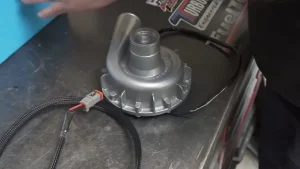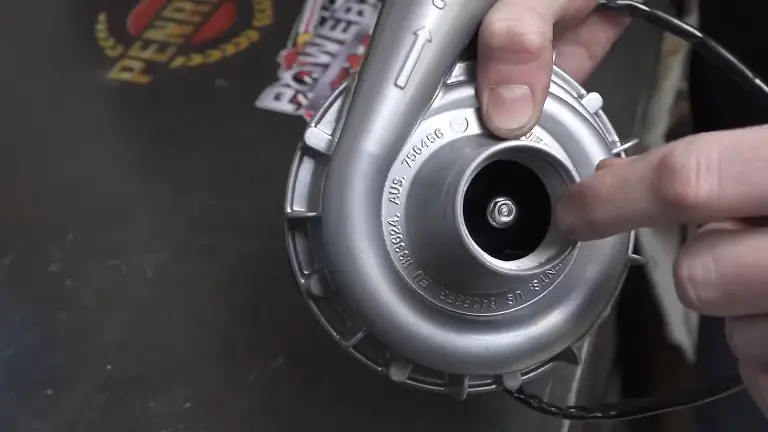Electric water pumps are a great option for homeowners who want to have a simple time drawing clean, cold water from their wells. Electric water pumps work by using electricity to power a motor that moves the pump’s shaft and draws well water up through a pipe to your faucet.
The electric part of the equation means you don’t need any gasoline or other fuel source to keep it running, which makes it very convenient as long as you’ve got access to power. And if you find yourself without power, there is also a hand crank version available so you can still draw well water even when the grid goes down!
What is an Electric Water Pump?
An electric water pump is a type of water pump that uses electricity to create the power it needs to function. There are various types of pumps, but they all serve similar purposes.
An electric water pump transfers water from one location to another. We can use it in agricultural irrigation, as well as for domestic, such as garden watering and even car washing. The best pumps are those that have been made intending to be environmentally friendly by using renewable resources like solar power or wind energy.
These types of pumps are also quieter than traditionally powered motors, so they won’t disturb your neighbors when you’re working on your yard late at night!

Location to Set Up an Electric Water Pump
In the summer, many of us are looking for ways to keep cool. One way is by using an electric water pump in a kiddie pool or small pond. The most important consideration is safety. You want to make sure that the electrical cord is not going into the water and that nothing will come into contact with it when you put it underwater.
Make sure there is enough space for you to plug in and unplug, touching nothing wet as well! Now, onto some considerations about placement: if you have room on land near your pool, then I recommend setting up your pump so that it’s close to where the power supply enters the house.
If not, then place it next to an outside power supply, like a generator or outdoor outlet. Electric water pumps are straightforward to install.
Make sure you have access to an electrical socket near the source of the well you will pump from. Keep in mind that some electric water pumps require their own power sources.
Types of Electric Water Pumps
- Submersible Pumps
- Centrifugal Pumps
- Diaphragm Pumps
- Booster Pumps
It is important for homeowners to understand the different electric water pumps available. There are 3 types of electric water pump that can be used in your house or farm. Each type has its own benefits and disadvantages, so it is important to know what they are before deciding on which one you want to use.
The three different types include diaphragm pumps, centrifugal pumps, and submersible pumps.
Submersible Pumps
A submersible pump is a type of pump that moves liquids from one location to another, typically from an elevated position to a lower one. We use these pumps all over the world for many purposes and they come in various sizes and types depending on what the need may be.
Centrifugal Pumps
Centrifugal Pumps are one of the most widely used pumps in the world. They use centrifugal force to move liquid and can handle a variety of liquids such as water, oil, gasoline, and sewage. A Centrifugal pump is acceptable for both residential and industrial purposes. The pump comprises an impeller that spins at high speeds inside a casing containing liquid with slits on the side to allow for circulation.

When spinning at high speeds, it creates pressure which forces liquid out through the slits into pipes or containers below it called suction lines. Centrifugal Pump is one of many types of pumps that are used by plumbers, homeowners, electricians, farmers, etc. Whether you need to pump.
Diaphragm Pumps
Diaphragm pumps are used to pump liquids, gases, and slurries. This type of pump is often used in the food industry for pumping sauces or soups. We also found it in commercial kitchen settings, chemical plants, breweries, dairies, and many other industries, where it’s required to handle viscous liquids with varying levels of viscosity.
Booster Pumps
Booster pumps are specialized pumps designed to increase the pressure of water in a system. They are commonly used in situations where water pressure is insufficient for specific applications, such as irrigation, plumbing, or industrial processes.
Accessories
The pump is one of the most important parts of your plumbing system. It’s what keeps water flowing to all areas of your house, so it’s essential that you keep it in good working condition. One accessory every homeowner needs for their electric water pump is a check valve.
A check valve can help protect the pump from damage by preventing backflow and helping maintain pressure at the tap. There are many other accessories that can be useful depending on what type of pump you have- just ask us! We’re always happy to answer questions about how to care for an electric water pump or any other part of your plumbing system.
Need Protection
If you have an electric water pump in your pond, it is important to protect yourself and ensure the safety of others. Electric pumps are very dangerous if they come into contact with any source of electricity or water. They can cause serious injury or even death. For this reason, it should turn the power off when working near the pump if you don’t need water there.
Has electric water pumped out at your home or business? You need protection. The last thing you want is to come back to find that water has flooded in and caused damage. That’s why we recommend getting an automatic shut-off valve installed on your electric water pump before you leave town.
How to Choose The Best One Electric Water Pump
Before making any purchase decisions, be sure to consider all these factors so that you can pick out the right water pump for your needs.
Pros and Cons
- The advantage of the electric water pump is that we can use it for low-flow applications
- The disadvantage of an electric water pump is that the power supply needs to be within reach
- It also needs a constant supply of electricity, so if there’s a power outage, you won’t have running water
- Another disadvantage is that the discharge pipe has to be at least 10 feet long and 3/8 inches in diameter
- If this isn’t possible, then you’ll need to use a submersible pump instead
- Electric pumps are more expensive than other types, but they’re quieter and easier to install

FAQs
Are electric water pumps worth it?
Yes, electric water pumps are generally worth it due to their energy efficiency, lower operating costs, and versatility for various applications. They provide reliable performance and reduce environmental impact, making them a smart investment for many users. You should consider your specific needs and budget before deciding.
What are the disadvantages of an electric water pump?
Electric water pumps have some disadvantages, including reliance on a power supply, which can be problematic during outages. They may also have higher initial costs compared to manual or gas-powered pumps.
How long do electric water pumps last?
Electric water pumps typically last between 10 to 15 years with proper maintenance. Factors such as usage frequency, water quality, and the environment can influence their lifespan. Regular inspections and timely repairs can help extend the life of your pump.
Why do electric water pumps fail?
Electric water pumps can fail due to several reasons, including overheating, electrical issues, wear and tear, clogged filters, and lack of maintenance. Poor installation or using the wrong pump for the application can also lead to premature failure. Regular maintenance can help prevent these issues and extend the pump’s lifespan.
In summary, electric water pumps are essential tools for various applications, offering efficiency, reliability, and environmental benefits. By understanding the different types, advantages, and maintenance requirements, users can select the right pump for their needs.

